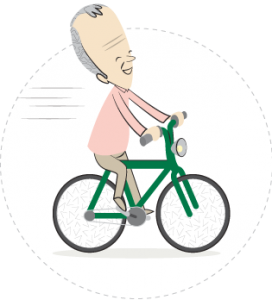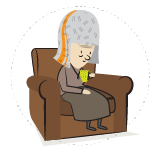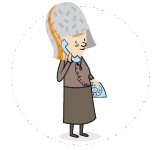The latest on staying healthy in later life

We report on the latest news and research around enjoying a prolonged and healthy life in senior years.
The herb rosemary may be useful in fighting Covid-19 and other inflammatory diseases such as Alzheimer’s according to US research. Preliminary results suggest that the carsonic acid, present in the herb, can impede interactions between the virus and the body’s ACE2 receptor, which the virus uses to enter human cells.
 The over 70s are being urged to exercise for 20 minutes a day to protect against severe heart disease. The greatest benefits are to those aged between 70 and 75.
The over 70s are being urged to exercise for 20 minutes a day to protect against severe heart disease. The greatest benefits are to those aged between 70 and 75.
Worth knowing, and I speak from experience. The NHS has launched a new heart attack awareness campaign, highlighting the lesser known symptoms, such as sweating, light-headedness and a general uneasiness.
Vitamin D supplements really do reduce the risk of autoimmune disease for people over 50, but it does require a higher dose than recommended by the Department of Health and Social Care.
 Not sure we’re keen on this one, but there’s a suggestion that post-menopausal women can prevent or delay bone loss by eating prunes. With people increasingly looking at ‘natural’ treatments for conditions, fruits and vegetables that are rich in bioactive compounds such as phenolic acid, flavonoids and carotenoids are being looking upon favourably in tackling osteoporosis, with prunes in particular gaining attention in previous research.
Not sure we’re keen on this one, but there’s a suggestion that post-menopausal women can prevent or delay bone loss by eating prunes. With people increasingly looking at ‘natural’ treatments for conditions, fruits and vegetables that are rich in bioactive compounds such as phenolic acid, flavonoids and carotenoids are being looking upon favourably in tackling osteoporosis, with prunes in particular gaining attention in previous research.
There have been quite a few stories around increasing longevity recently:
- Switching away from a Western diet to a diet of nuts, beans and wholegrains with little red meat could mean that people in their 20s could add 13 years to their life, while people in their 60s who make the change could add 8 years to their lifespan.
 Drinking coffee is now thought to lower the risk of death from a variety of common conditions, thereby extending lifespans in general. A study is suggesting that people who drink just one cup of coffee a day have a 12% less chance of dying from heart disease, cancer, stroke, diabetes, respiratory problems or kidney disease. And that goes up to 18% for those who drink two or three cups a day.
Drinking coffee is now thought to lower the risk of death from a variety of common conditions, thereby extending lifespans in general. A study is suggesting that people who drink just one cup of coffee a day have a 12% less chance of dying from heart disease, cancer, stroke, diabetes, respiratory problems or kidney disease. And that goes up to 18% for those who drink two or three cups a day.
As many as 9 out of 10 strokes can be avoided, according to the Stroke Association. Lifestyle changes that can reduce risk of a stroke include reducing stress, monitoring blood pressure, eating a balanced diet, exercising regularly, losing weight, giving up smoking, drinking less, keeping an eye on cholesterol and reducing salt intake.
 With long waiting lists for elective surgery, the Department of Health and Social Care is launching ‘My Planned Care’ in February 2022, a platform aimed at providing targeted information for patients and their carers waiting for surgery. The idea is to provide more personalised information about waiting times and support, as well as advice on getting fit for surgery. The service will be provided via NHS.UK. NHS England has also published it delivery plan for tackling the backlog of elective care caused by Covid-19.
With long waiting lists for elective surgery, the Department of Health and Social Care is launching ‘My Planned Care’ in February 2022, a platform aimed at providing targeted information for patients and their carers waiting for surgery. The idea is to provide more personalised information about waiting times and support, as well as advice on getting fit for surgery. The service will be provided via NHS.UK. NHS England has also published it delivery plan for tackling the backlog of elective care caused by Covid-19.
 We know that enforced isolation is detrimental to mental health, but different people have different ideas on how much social interaction they would like. I was delighted to contribute recently to a discussion around social connections and talk about being able to make choices.
We know that enforced isolation is detrimental to mental health, but different people have different ideas on how much social interaction they would like. I was delighted to contribute recently to a discussion around social connections and talk about being able to make choices.
Photo by Belinda Fewings on Unsplash

